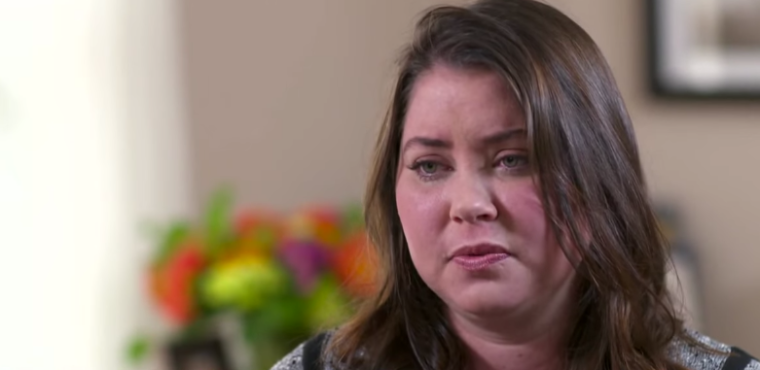Brittany Maynard Death: Decision Sparks Death With Dignity Discussion

Last Saturday, Nov. 1, Brittany Maynard, who was terminally ill with cancer, chose to end her life "with dignity."
Her decision to "plan her death" sparked a discussion about "Death With Dignity" laws in the U.S.
Maynard was diagnosed with brain cancer earlier this year. She underwent partial craniotomy and also partial resection of her temporal lobe. However, her tumor returned. By April she found out that it was a Stage 4 glioblastoma.
After the recurrence, doctors recommended that she undergo a course of full brain radiation to treat the large tumor. However, Maynard did not avail herself of the treatment after she learned that her hair would fall off as a result of the treatment. Also she likewise learned that her scalp would be left with burns and that her quality of life would deteriorate significantly thereafter.
In her statement, which was released on CNN after her death, Maynard explained how she did not want to die in a hospice because "even with palliative medication, I could develop morphine-resistant pain, suffer personality changes, and experience verbal, cognitive and motor loss."
She opted instead to continue with medication to treat the swelling in her brain which resulted in weight gain and facial swelling. She also had numerous seizures caused by the brain tumor.
Maynard finally decided to move from California to Oregon where she could make use of the state's Death With Dignity Law and legally get a physician to prescribe drugs to end her life. She then publicized her decision to end her life on Nov. 1, noting that she might delay taking the drugs if her condition improved dramatically.
After her death, Sean Crowley, a spokesperson for Compassion & Choices, stated that she took the drugs that she had kept for months as scheduled because she began having "frequent and longer seizures, severe head and neck pain, and stroke-like symptoms."
Maynard was one of some 800 terminally ill people who had used the Death With Dignity law to end their lives since it was enacted in Oregon in 1997.
 Christians don't have to affirm transgenderism, but they can’t express that view at work: tribunal
Christians don't have to affirm transgenderism, but they can’t express that view at work: tribunal Archaeology discovery: Medieval Christian prayer beads found on Holy Island
Archaeology discovery: Medieval Christian prayer beads found on Holy Island Presbyterian Church in America votes to leave National Association of Evangelicals
Presbyterian Church in America votes to leave National Association of Evangelicals Over 50 killed in 'vile and satanic' attack at Nigerian church on Pentecost Sunday
Over 50 killed in 'vile and satanic' attack at Nigerian church on Pentecost Sunday Ukrainian Orthodox Church severs ties with Moscow over Patriarch Kirill's support for Putin's war
Ukrainian Orthodox Church severs ties with Moscow over Patriarch Kirill's support for Putin's war Islamic State kills 20 Nigerian Christians as revenge for US airstrike
Islamic State kills 20 Nigerian Christians as revenge for US airstrike Man who served 33 years in prison for murder leads inmates to Christ
Man who served 33 years in prison for murder leads inmates to Christ


 Nigerian student beaten to death, body burned over ‘blasphemous’ WhatsApp message
Nigerian student beaten to death, body burned over ‘blasphemous’ WhatsApp message 'A new low': World reacts after Hong Kong arrests 90-year-old Cardinal Joseph Zen
'A new low': World reacts after Hong Kong arrests 90-year-old Cardinal Joseph Zen Iran sentences Christian man to 10 years in prison for hosting house church worship gathering
Iran sentences Christian man to 10 years in prison for hosting house church worship gathering French Guyana: Pastor shot dead, church set on fire after meeting delegation of Evangelicals
French Guyana: Pastor shot dead, church set on fire after meeting delegation of Evangelicals ‘Talking Jesus’ report finds only 6% of UK adults identify as practicing Christians
‘Talking Jesus’ report finds only 6% of UK adults identify as practicing Christians Mission Eurasia ministry center blown up in Ukraine, hundreds of Bibles destroyed: 'God will provide'
Mission Eurasia ministry center blown up in Ukraine, hundreds of Bibles destroyed: 'God will provide' Church holds service for first time after ISIS desecrated it 8 years ago
Church holds service for first time after ISIS desecrated it 8 years ago Burger King apologizes for 'offensive campaign' using Jesus' words at the Last Supper
Burger King apologizes for 'offensive campaign' using Jesus' words at the Last Supper Uganda: Muslims abduct teacher, burn him inside mosque for praying in Christ’s name
Uganda: Muslims abduct teacher, burn him inside mosque for praying in Christ’s name